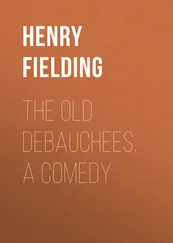Henry Fielding - History of Tom Jones, a Foundling
Здесь есть возможность читать онлайн «Henry Fielding - History of Tom Jones, a Foundling» — ознакомительный отрывок электронной книги совершенно бесплатно, а после прочтения отрывка купить полную версию. В некоторых случаях можно слушать аудио, скачать через торрент в формате fb2 и присутствует краткое содержание. Жанр: foreign_prose, foreign_antique, на английском языке. Описание произведения, (предисловие) а так же отзывы посетителей доступны на портале библиотеки ЛибКат.
- Название:History of Tom Jones, a Foundling
- Автор:
- Жанр:
- Год:неизвестен
- ISBN:нет данных
- Рейтинг книги:4 / 5. Голосов: 1
-
Избранное:Добавить в избранное
- Отзывы:
-
Ваша оценка:
- 80
- 1
- 2
- 3
- 4
- 5
History of Tom Jones, a Foundling: краткое содержание, описание и аннотация
Предлагаем к чтению аннотацию, описание, краткое содержание или предисловие (зависит от того, что написал сам автор книги «History of Tom Jones, a Foundling»). Если вы не нашли необходимую информацию о книге — напишите в комментариях, мы постараемся отыскать её.
History of Tom Jones, a Foundling — читать онлайн ознакомительный отрывок
Ниже представлен текст книги, разбитый по страницам. Система сохранения места последней прочитанной страницы, позволяет с удобством читать онлайн бесплатно книгу «History of Tom Jones, a Foundling», без необходимости каждый раз заново искать на чём Вы остановились. Поставьте закладку, и сможете в любой момент перейти на страницу, на которой закончили чтение.
Интервал:
Закладка:
“Don’t accuse me of spoiling him,” says Square. “Who taught him to laugh at whatever is virtuous and decent, and fit and right in the nature of things? He is your own scholar, and I disclaim him. No, no, Master Blifil is my boy. Young as he is, that lad’s notions of moral rectitude I defy you ever to eradicate.”
Thwackum put on a contemptuous sneer at this, and replied, “Ay, ay, I will venture him with you. He is too well grounded for all your philosophical cant to hurt. No, no, I have taken care to instil such principles into him – ”
“And I have instilled principles into him too,” cries Square. “What but the sublime idea of virtue could inspire a human mind with the generous thought of giving liberty? And I repeat to you again, if it was a fit thing to be proud, I might claim the honour of having infused that idea.” —
“And if pride was not forbidden,” said Thwackum, “I might boast of having taught him that duty which he himself assigned as his motive.”
“So between you both,” says the squire, “the young gentleman hath been taught to rob my daughter of her bird. I find I must take care of my partridge-mew. I shall have some virtuous religious man or other set all my partridges at liberty.” Then slapping a gentleman of the law, who was present, on the back, he cried out, “What say you to this, Mr Counsellor? Is not this against law?”
The lawyer with great gravity delivered himself as follows: —
“If the case be put of a partridge, there can be no doubt but an action would lie; for though this be ferae naturae , yet being reclaimed, property vests: but being the case of a singing bird, though reclaimed, as it is a thing of base nature, it must be considered as nullius in bonis . In this case, therefore, I conceive the plaintiff must be non-suited; and I should disadvise the bringing any such action.”
“Well,” says the squire, “if it be nullus bonus , let us drink about, and talk a little of the state of the nation, or some such discourse that we all understand; for I am sure I don’t understand a word of this. It may be learning and sense for aught I know: but you shall never persuade me into it. Pox! you have neither of you mentioned a word of that poor lad who deserves to be commended: to venture breaking his neck to oblige my girl was a generous-spirited action: I have learning enough to see that. D – n me, here’s Tom’s health! I shall love the boy for it the longest day I have to live.”
Thus was the debate interrupted; but it would probably have been soon resumed, had not Mr Allworthy presently called for his coach, and carried off the two combatants.
Such was the conclusion of this adventure of the bird, and of the dialogue occasioned by it; which we could not help recounting to our reader, though it happened some years before that stage or period of time at which our history is now arrived.
Chapter v. – Containing matter accommodated to every taste
“Parva leves capiunt animos – Small things affect light minds,” was the sentiment of a great master of the passion of love. And certain it is, that from this day Sophia began to have some little kindness for Tom Jones, and no little aversion for his companion.
Many accidents from time to time improved both these passions in her breast; which, without our recounting, the reader may well conclude, from what we have before hinted of the different tempers of these lads, and how much the one suited with her own inclinations more than the other. To say the truth, Sophia, when very young, discerned that Tom, though an idle, thoughtless, rattling rascal, was nobody’s enemy but his own; and that Master Blifil, though a prudent, discreet, sober young gentleman, was at the same time strongly attached to the interest only of one single person; and who that single person was the reader will be able to divine without any assistance of ours.
These two characters are not always received in the world with the different regard which seems severally due to either; and which one would imagine mankind, from self-interest, should show towards them. But perhaps there may be a political reason for it: in finding one of a truly benevolent disposition, men may very reasonably suppose they have found a treasure, and be desirous of keeping it, like all other good things, to themselves. Hence they may imagine, that to trumpet forth the praises of such a person, would, in the vulgar phrase, be crying Roast-meat, and calling in partakers of what they intend to apply solely to their own use. If this reason does not satisfy the reader, I know no other means of accounting for the little respect which I have commonly seen paid to a character which really does great honour to human nature, and is productive of the highest good to society. But it was otherwise with Sophia. She honoured Tom Jones, and scorned Master Blifil, almost as soon as she knew the meaning of those two words.
Sophia had been absent upwards of three years with her aunt; during all which time she had seldom seen either of these young gentlemen. She dined, however, once, together with her aunt, at Mr Allworthy’s. This was a few days after the adventure of the partridge, before commemorated. Sophia heard the whole story at table, where she said nothing: nor indeed could her aunt get many words from her as she returned home; but her maid, when undressing her, happening to say, “Well, miss, I suppose you have seen young Master Blifil to-day?” she answered with much passion, “I hate the name of Master Blifil, as I do whatever is base and treacherous: and I wonder Mr Allworthy would suffer that old barbarous schoolmaster to punish a poor boy so cruelly for what was only the effect of his good-nature.” She then recounted the story to her maid, and concluded with saying, “Don’t you think he is a boy of noble spirit?”
This young lady was now returned to her father; who gave her the command of his house, and placed her at the upper end of his table, where Tom (who for his great love of hunting was become a great favourite of the squire) often dined. Young men of open, generous dispositions are naturally inclined to gallantry, which, if they have good understandings, as was in reality Tom’s case, exerts itself in an obliging complacent behaviour to all women in general. This greatly distinguished Tom from the boisterous brutality of mere country squires on the one hand, and from the solemn and somewhat sullen deportment of Master Blifil on the other; and he began now, at twenty, to have the name of a pretty fellow among all the women in the neighbourhood.
Tom behaved to Sophia with no particularity, unless perhaps by showing her a higher respect than he paid to any other. This distinction her beauty, fortune, sense, and amiable carriage, seemed to demand; but as to design upon her person he had none; for which we shall at present suffer the reader to condemn him of stupidity; but perhaps we shall be able indifferently well to account for it hereafter.
Sophia, with the highest degree of innocence and modesty, had a remarkable sprightliness in her temper. This was so greatly increased whenever she was in company with Tom, that had he not been very young and thoughtless, he must have observed it: or had not Mr Western’s thoughts been generally either in the field, the stable, or the dog-kennel, it might have perhaps created some jealousy in him: but so far was the good gentleman from entertaining any such suspicions, that he gave Tom every opportunity with his daughter which any lover could have wished; and this Tom innocently improved to better advantage, by following only the dictates of his natural gallantry and good-nature, than he might perhaps have done had he had the deepest designs on the young lady.
But indeed it can occasion little wonder that this matter escaped the observation of others, since poor Sophia herself never remarked it; and her heart was irretrievably lost before she suspected it was in danger.
Читать дальшеИнтервал:
Закладка:
Похожие книги на «History of Tom Jones, a Foundling»
Представляем Вашему вниманию похожие книги на «History of Tom Jones, a Foundling» списком для выбора. Мы отобрали схожую по названию и смыслу литературу в надежде предоставить читателям больше вариантов отыскать новые, интересные, ещё непрочитанные произведения.
Обсуждение, отзывы о книге «History of Tom Jones, a Foundling» и просто собственные мнения читателей. Оставьте ваши комментарии, напишите, что Вы думаете о произведении, его смысле или главных героях. Укажите что конкретно понравилось, а что нет, и почему Вы так считаете.












